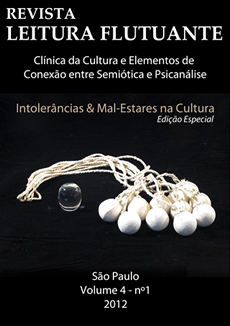Elements of Erich Fromm’s radical humanism in the work of Albert Camus
Palabras clave:
biophilia, absurd, revolt, human destructiveness, freedom, aggressiveness, therapeuticResumen
The research attempts to identify how Fromm’s biophilia may be found in Camus’s works (essays and fiction). They both discuss man’s destructiveness and freedom, and reject the idea of a human destiny dictated by destructive forces, concluding that any doctrine of absolute salvation should be regarded with suspicion. Doctor Rieux’s attitude (Camus, The Plague) shows that man’s purpose could only be to diminish suffering in this world, as he is engaged in a never-ending defeat. Man’s response to the menace of destruction should be awareness, availability to act, sincerity and love. Fromm distinguishes between defensive aggressiveness and malign forms of aggressiveness; the latter can be reduced by social-economic conditions favourable to human development. His confidence in humanity is based on a critical awareness of all the factors relevant for the survival of humans. This resembles Camus’s attitude of avoiding the extremes, nihilist pesimism and facile optimism. Both thinkers promote a rational optimism regarding the future of human species, and consider freedom and solidarity as crucial issues; however Fromm thinks people are inclined to submit to authority, as liberation provokes fear and helplessness. Both thinkers believe that the solutions are spontaneous love and productive co-operation as part of a “therapeutic method“. For Camus negation and absurdity are only premises for lucidity, revolt and the passion for living (an “optimistic” Camus). The absurd is not a creed for him, but a given; revolt is a practical life attitude. These consequences of the absurd seem compatible with Fromm’s relatedness, his belief in man’s need for a frame of orientation and devotion. Camus’s optimism may relate him to Fromm’s radical humanism. Keeping in mind the nuances in their approaches, we may conclude that Fromm’s biophilia could have as starting point only Camus’s rejection of murder and suicide as solutions or consequences of the absurd.
About the Author:
Raluca Rosu is enrolled in a master’s degree programme in Philosophy of Culture, at the Faculty of Philosophy, University of Bucharest. She is interested in the relationship between philosophy and psychoanalysis, with a focus on Erich Fromm’s psychoanalytical theory and its applications for cultural analysis. She has already engaged in a psychoanalytical and philosophical reading of F.M Dostoievski’s novels. Her current research aims at identifying psychoanalytical elements in the work of the french writer Albert Camus.
Métricas
Descargas
Cómo citar
Número
Sección
Licencia
Proposta de Política para Periódicos de Acesso Livre
Autores que publicam nesta revista concordam com os seguintes termos:
- Autores mantém os direitos autorais e concedem à revista o direito de primeira publicação, com o trabalho simultaneamente licenciado sob a Licença Creative Commons Attribution que permite o compartilhamento do trabalho com reconhecimento da autoria e publicação inicial nesta revista.
- Autores têm autorização para assumir contratos adicionais separadamente, para distribuição não-exclusiva da versão do trabalho publicada nesta revista (ex.: publicar em repositório institucional ou como capítulo de livro), com reconhecimento de autoria e publicação inicial nesta revista.
- Autores têm permissão e são estimulados a publicar e distribuir seu trabalho online (ex.: em repositórios institucionais ou na sua página pessoal) a qualquer ponto antes ou durante o processo editorial, já que isso pode gerar alterações produtivas, bem como aumentar o impacto e a citação do trabalho publicado (Veja O Efeito do Acesso Livre).


